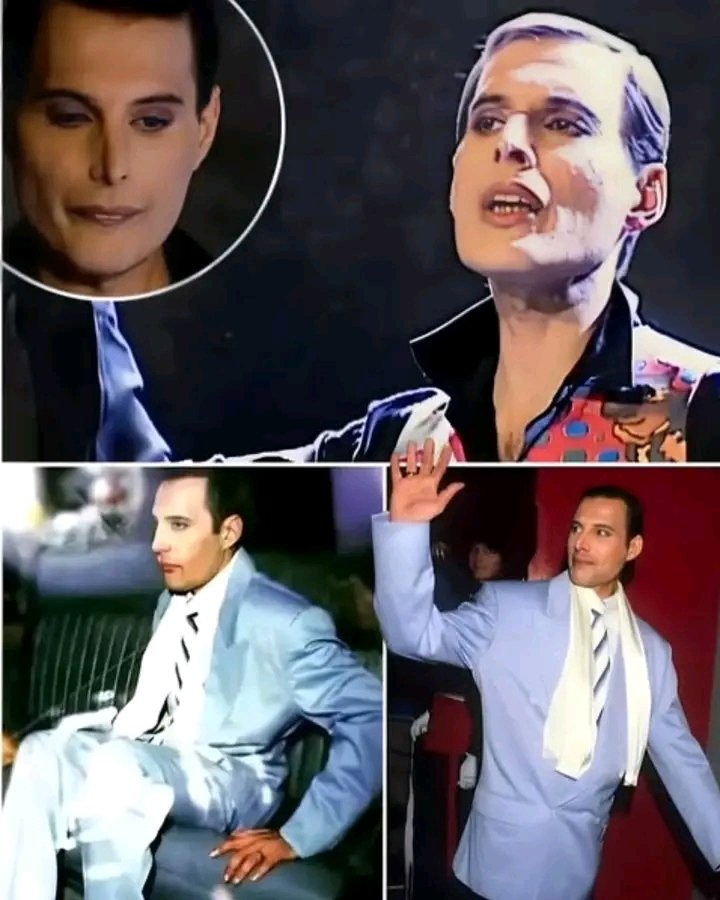A Poignant Silence: Freddie Mercury’s Final Public Appearance at the 1990 Brit Awards Remains a Lasting Symbol of Grace, Strength, and Legacy in the Face of Silence
On February 18, 1990, beneath the bright lights of the Dominion Theatre in London, history was quietly written—not with thunderous applause or flamboyant theatrics, but with a soft smile and a silence that spoke louder than any anthem. It was at the Brit Awards that evening that Freddie Mercury, Queen’s electrifying frontman, made what would become his final public appearance. The occasion: Queen receiving the prestigious award for Outstanding Contribution to Music.
Freddie stood on stage flanked by his loyal bandmates—Brian May, Roger Taylor, and John Deacon. From a distance, the scene may have looked like any typical celebration of a legendary rock band. But for those who looked closely, the atmosphere carried a weight that words couldn’t capture. Freddie, dressed immaculately in a dark, tailored suit, looked refined and elegant—but markedly thinner, his once-robust energy now quieter, more contained. The public didn’t yet know the full extent of his battle with AIDS, but the signs were there, visible to those paying attention.
When the moment came to speak, it was not Mercury who took the microphone. Instead, it was Brian May who addressed the audience, offering thanks on behalf of the band. Freddie remained silent throughout, but his presence said more than words ever could. He smiled graciously, standing tall with the kind of dignity that transcended his declining health. It was a moment of poise, pride, and a quiet goodbye that few realized was unfolding in real time.
In an industry often defined by spectacle, Freddie Mercury had always been the master of it—flamboyant, fearless, commanding. But that night, he showed the world something else: grace under pressure. He didn’t need to sing a note or deliver a dramatic farewell. Just being there, standing beside the friends who had shared his meteoric rise, was enough.
That image—Freddie, elegant and silent, eyes sparkling despite the toll of illness—became one of the most enduring photographs in music history. It would be the last time fans saw him at a public event. Less than two years later, the world would lose him at the age of 45. But that night in 1990, he reminded everyone of the strength it takes to simply show up, to smile through pain, and to hold your head high when words fail.
In the years since, that brief appearance has come to symbolize the dual nature of Freddie Mercury’s legacy: larger-than-life on stage, deeply human off it. His final bow wasn’t delivered in front of a roaring stadium crowd, but under a single spotlight—silent, strong, unforgettable.
For those who love him still, that February evening remains a final, dignified encore. And for the world of music, it was the last time we saw the man who didn’t just sing songs—but transformed them into immortal anthems.
